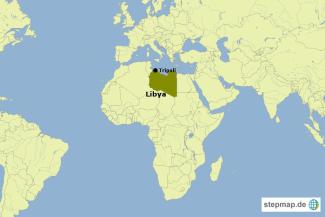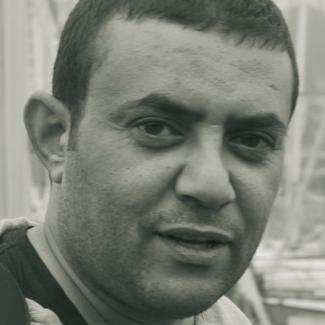Media
Reality check

In a project initiated by the Libyan Organization for Independent Media and its founder Reda Fhelboom, the group publishes articles refuting “fake news” concerning Covid-19. Its platform is a Facebook page called Sabr. It was developed with support from the American Bar Association.
The word “Sabr” means “probe” or “exploration” in Arabic. It carries articles, often accompanied by graphic designs, identifying specific cases of falsehoods on social media concerning Covid-19 and setting the record straight.
The group consists of 12 Libyan journalists, including five women. Before launching the project they participated in a week-long workshop focusing on Covid-19 facts, techniques and tools for fact-checking, and spotting hate speech contained in Covid-19 misinformation. They honed their skills in checking sources, interviewing experts and writing fact-checking reports.
The project took shape as social media become increasingly important news sources for Libyans. “Facebook has a strong influence on public opinion,” says journalist Kholoud Alfalah. “Fake accounts have 70 % of the viewers and news agencies have only 30 %.”
“We launched the site because there is no Libyan platform observing fake news about Covid-19 on Facebook” says Reda Fhelboom, a journalist and human-rights activist who serves as the site’s managing editor. Sabr currently has over 14,000 followers.
The journalists have plenty to do; Covid-19 misinformation appears nearly daily on social media. “We first look at how far a posting might influence public opinion, and then we start to check the information with reliable sources,” says Amel Sabri, a Sabr fact-checker.
Fact-checking reports appear on the Sabr site in different categories relating to the original information. These range from “misleading and missing important information” and “partly false” to “completely fake” and finally “containing hate speech and promoting discrimination”.
For example, a Facebook page calling itself Old City of Tripoli recently included a post quoting a University of California study as predicting the coronavirus will disappear on its own within two months, as new mutations kill the virus off. The original post generated hundreds of comments.
Sabr journalist Amjed Dabob checked with the University of California and with the World Health Organization, both of which denied the report. He then wrote an article correcting the record and labelling the original posting as “completely fake”.
In addition to written reports and graphic designs, Sabr journalists prepare podcasts to promote awareness of the facts. “We design awareness materials on such topics as the importance of wearing masks or the danger of using certain verbal expressions which spread hate speech and promote discrimination,” says Sabr fact-checker Fida Yahya.
Link
Sabr: https://www.facebook.com/SabrPlatform
Moutaz Ali is a journalist in Tripoli, Libya.
ali.moutaz77@gmail.com








